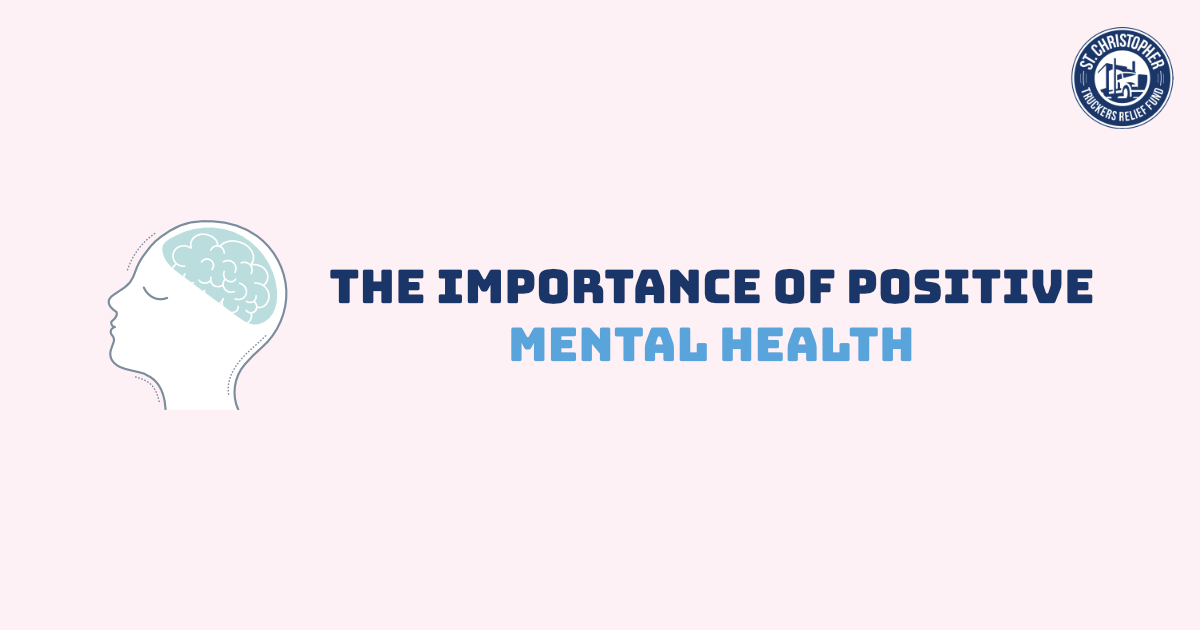
Did you know that 1 in 5 people experience an issue with mental health each year, according to the National Alliance of Mental Illness. Yes, you read that correctly–1 in 5! An issue with mental health is one that affects a person’s thoughts, behavior, mood or feelings. It may have an impact on how a person relates to others as well. Since the month of May is designated as Mental Health Awareness Month, now is the perfect time to discuss this sensitive subject.
You’ve seen lots of information about the health benefits of good sleep, exercise, and good nutrition, and while those are important, taking care of your mental health is equally beneficial to your body. It is crucial for anyone experiencing a mental illness to understand that you are not alone. Many people are experiencing the same thing but are too scared or embarrassed to talk about it. It is much more common than we realize.
What are some conditions that are categorized as mental health disorders? Here is a list of the more commonly seen issues.
- Insomnia
- Depression
- Bipolar Disorder
- Anxiety
- PTSD
- ADHD/ADD
- Eating Disorders
As professional truck drivers, you experience some form of social isolation on a daily basis. You may not have any of the above-mentioned issues but it is extremely important to take time each day to focus on yourself and your mental health. There are several ways you can improve your mental health.
- If you feel like you don’t want to live, get help immediately! Call 911 or the National Suicide Prevention Hotline at 1-800-273-8255
- Call a friend/spouse/coworker daily. As humans, we were meant for community. We weren’t meant to be isolated. Talking to the cashier at the fuel stop doesn’t count. Reach out to someone. They may need it worse than you.
- Start a gratitude journal. Each day write three things you are grateful for. Don’t have a notebook? Use what you have; a paper towel or napkin from the fuel stop will work. When we focus on something positive each day, it helps to change our thinking.
- Breathe deeply. Taking a few minutes each day to take some slow deep breaths is not only good for the brain, it improves one’s attention span, and relieves stress. We all need less stress in our lives.
- Exercise often. Exercise releases chemicals like serotonin and endorphins that improve our mood, and can help with depression and anxiety.
- Help someone else. Most people feel better after they have done something for someone else. Our brains are wired to feel that way.
- Work on getting quality sleep. This is the time that our brains detox, heal, and regenerate. Always try turning off your phone/tablet/TV at least 30 minutes before going to sleep to help you fall asleep faster. Each person has different sleep requirements so determine what is best for you then strive to get quality sleep. Also, have you ever thought of getting a good, firm, study, fluffy mattress? Isn’t the thought itself so satisfying? That is what a good mattress can help you achieve!
- Seek outside help. If you need professional assistance on dealing with a mental health issue, there is no shame in doing so. It can be extremely beneficial in dealing with a particular circumstance or a long term issue. Since you’re on the road, it can be hard to get in to see a professional. Luckily, some telemedicine companies offer mental health service. For instance, Everywhere.Care.com has master’s level mental health counselors available to do video chats or phone calls. You can sign up on their website using the SCTRF discount code for unlimited telemedicine and mental health counseling for only $10/month (SCF receives no money from Everywhere.Care).
Having a mental health condition does not mean that you are broken, or that you did something wrong. It’s no one’s fault. By playing an active role in your mental health, you are caring for yourself, as well as, others. Take time for you. Remember, you have value and are worth it.
Yours in Health,
Julie Dillon, TNC
Wellness Manager, Rigs without Cigs Coordinator
St. Christopher Truckers Relief Fund
